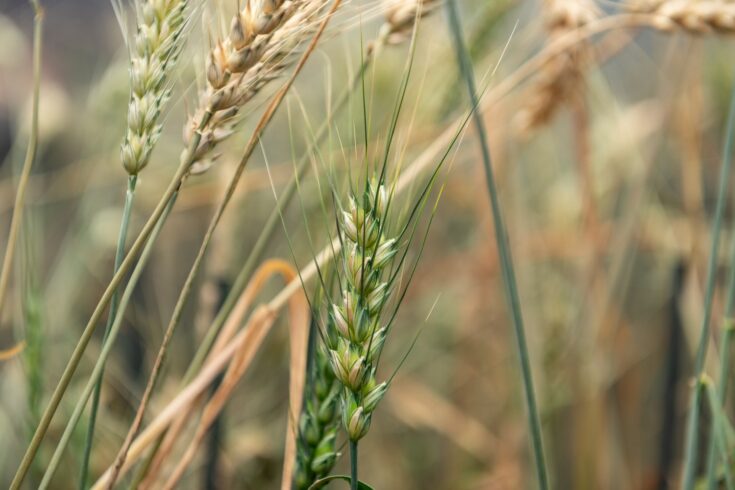A critical staple in the global diet, wheat faces increasing demand due to a growing population and rising incomes.
Investments by the Biotechnology and Biological Sciences Research Council (BBSRC) between 2010 to 2011 and 2021 to 2022, totalling £221.7 million, have helped address these challenges.
They have also propelled UK wheat research to new heights.
Meeting future food demand
The independent report published by BBSRC underscores the vital role of wheat in global food security.
With wheat providing 20% of human calories and demand growing by 1.7% annually, BBSRC’s research initiatives have focused on enhancing wheat yields, resilience and sustainability.
All crucial factors in meeting future food demands.
Furthermore, the research has helped address the pressing issue of climate change, which significantly impacts wheat production, especially in the Global South.
Collaborating for success
Collaboration has been a cornerstone of BBSRC’s success.
Through strategic partnerships between researchers, industry and leading research institutions, knowledge exchange has flourished, leading to innovative breakthroughs.
These collaborations have not only strengthened UK wheat research capabilities but have also created a vibrant community dedicated to advancing agricultural science.
Driving economic growth
Economically, BBSRC’s investments in wheat research are projected to create £900 million Gross Value Added (GVA) for the UK economy over a 25-year period.
This translates to a return of £4 for every £1 invested by BBSRC.
The global impact of these investments is even more significant, contributing an estimated additional £1.99 billion to the global GVA.
This represents a return of £8.9 per £1 invested by BBSRC between 2010 to 2011 and 2021 to 2022.
Paving the way for a sustainable future
Professor Guy Poppy, interim Executive Chair at BBSRC, said:
As the UK’s major public funder of bioscience research and innovation, BBSRC plays a pivotal role in advancing wheat research and innovation, making a significant impact on global food security.
Our investments have not only addressed critical challenges in global wheat production, but have also provided innovative solutions around diet, health and nutrition.
Wheat is crucial for feeding a growing population.
Through collaboration and transformative research, our initiatives have enhanced wheat yields, resilience and sustainability while contributing significantly to tackling climate change’s impact on wheat production.
BBSRC’s approach sets a precedent for sustainable agriculture and food security, paving the way for a more secure and sustainable global food future.
Delivering global impact
BBSRC’s research programmes have delivered real-world impacts both at home and abroad.
From enhanced yield, quality and nutritional value to pest and disease resistance, the investments have delivered transformative outcomes.
Addressing fibre deficiency
In the UK, a staggering 91% of adults fall short of their daily dietary fibre needs, putting them at risk of diseases like:
- type 2 diabetes
- heart disease
- bowel cancer
- obesity
The Quadram Institute developed a high-resistant starch wheat variety to help address the fibre deficiency in UK’s adult population.
The high-resistant starch bread also remained fresher during storage, suggesting commercial viability.
Researchers from Rothamsted Research and the John Innes Centre (JIC) also identified genes responsible for arabinoxylan (AX) content, a major dietary fibre component.
They produced high-fibre wheat with double the AX content of regular white flour, potentially increasing adult fibre consumption by 1.5g per day without changing eating habits.
Cracking wheat’s genetic code
A collaboration led by the International Wheat Genome Sequencing Consortium and the Earlham Institute, along with partners including JIC and Rothamsted Research, achieved ground-breaking progress in sequencing, annotating and assembling the complex wheat genome.
The Earlham Institute’s innovative tools enabled precise genome analysis, accelerating the development of improved wheat varieties.
The accomplishment not only provided crucial insights into wheat genetics but also served as a model for sequencing other intricate plant genomes.
The Earlham Institute’s subsequent research endeavours, such as identifying genetic markers for heat tolerance and exploring wheat’s circadian clock, further contribute to informing and enhancing breeding programmes for climate-resilient wheat varieties.
Standing up to climate change
JIC researchers unearthed a game changer.
A novel copy of the ZIP4 gene and guardian of 50% of wheat grain number, with an important role in the exchange of genetic information from related chromosomes.
The discovery paves the way for elite, high-yield wheat varieties built to withstand climate challenges.
Boosting disease resistance
University of Nottingham researchers introduced resistance genes from wild wheat relatives to improve resistance against fusarium head blight.
These advancements are vital for global agriculture, particularly in low-income countries.
Internationally, commercial wheat breeders are already embracing these resilient lines.
Revolutionising crop analysis
The University of Manchester spin-out, Fotenix, pioneered 3D multi-spectral imaging for agriculture, an innovation that offers real-time crop disease and stress identification.
The technology was developed to mount on tractors, robotics or handheld devices.
Tackling wheat yellow rust disease
Collaborations between JIC, the Earlham Institute, the National Institute of Agricultural Botany and major breeders led to novel rapid pathogen surveillance methods and the identification of key genes for yellow rust disease resistance.
The research will aid breeders in creating superior wheat varieties and enhancing resistance in wheat lines globally.
Read the report: Evaluation of the socio-economic impacts arising from BBSRC’s investment in wheat research and innovation and view BBSRC’s new revolutionising wheat impact showcase.
Further information
Delivering Sustainable Wheat
The Delivering Sustainable Wheat institute strategic programme was funded by BBSRC in May 2023.
The programme is a coordinated and collaborative initiative to address critical challenges in wheat health, yield and production in order to safeguard the future of this vital crop.
It builds upon the discoveries and developments made during BBSRC’s Designing Future Wheat programme, developing a world-leading experimental platform for wheat research.
Led by JIC, the Delivering Sustainable Wheat programme is a multidisciplinary research initiative that brings together the skills and expertise of:
- JIC
- Earlham Institute
- National Institute of Agricultural Botany
- Quadram Institute
- Rothamsted Research
- universities of Leeds, Nottingham, Lancaster, Bristol and Imperial College London

